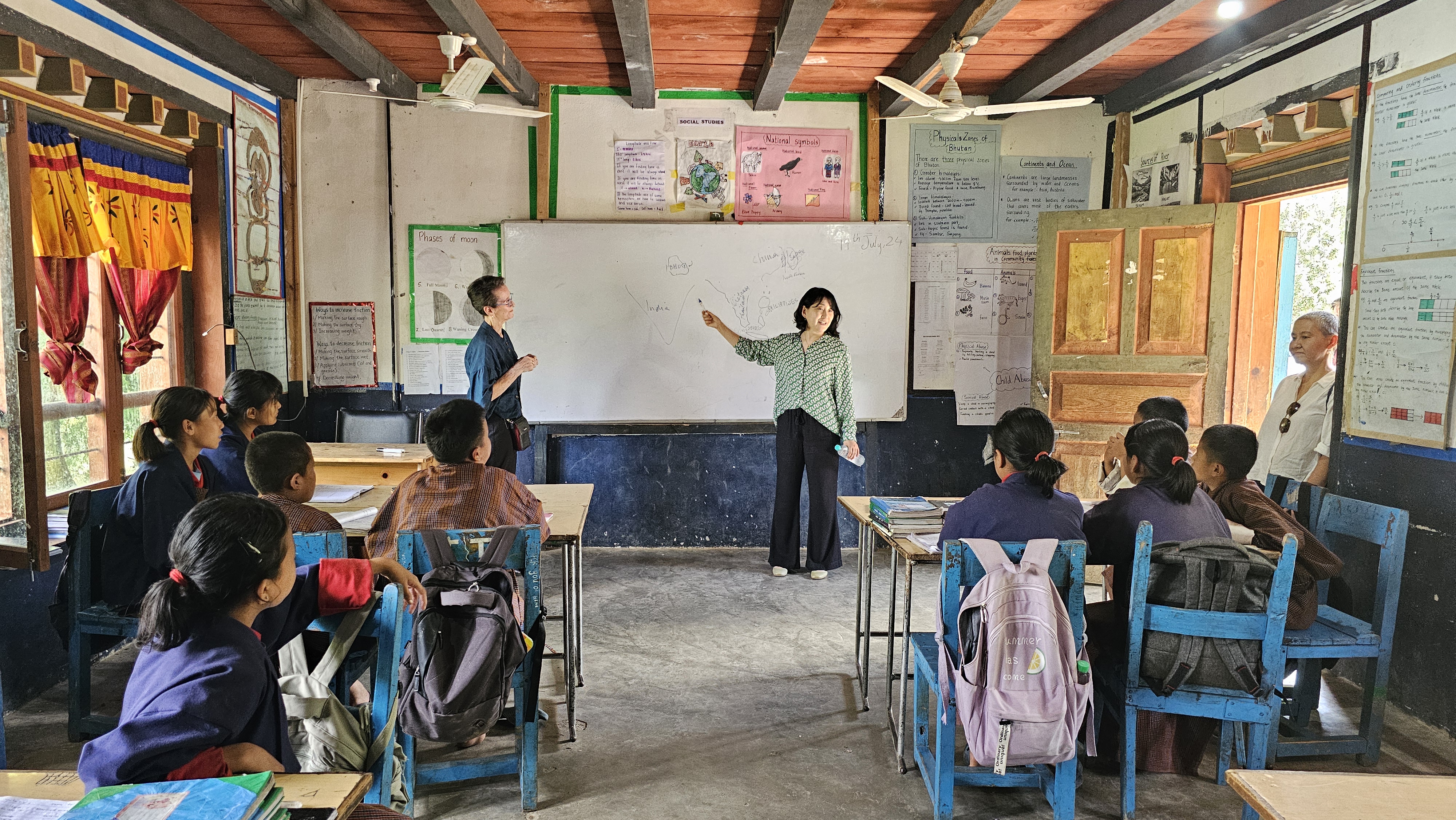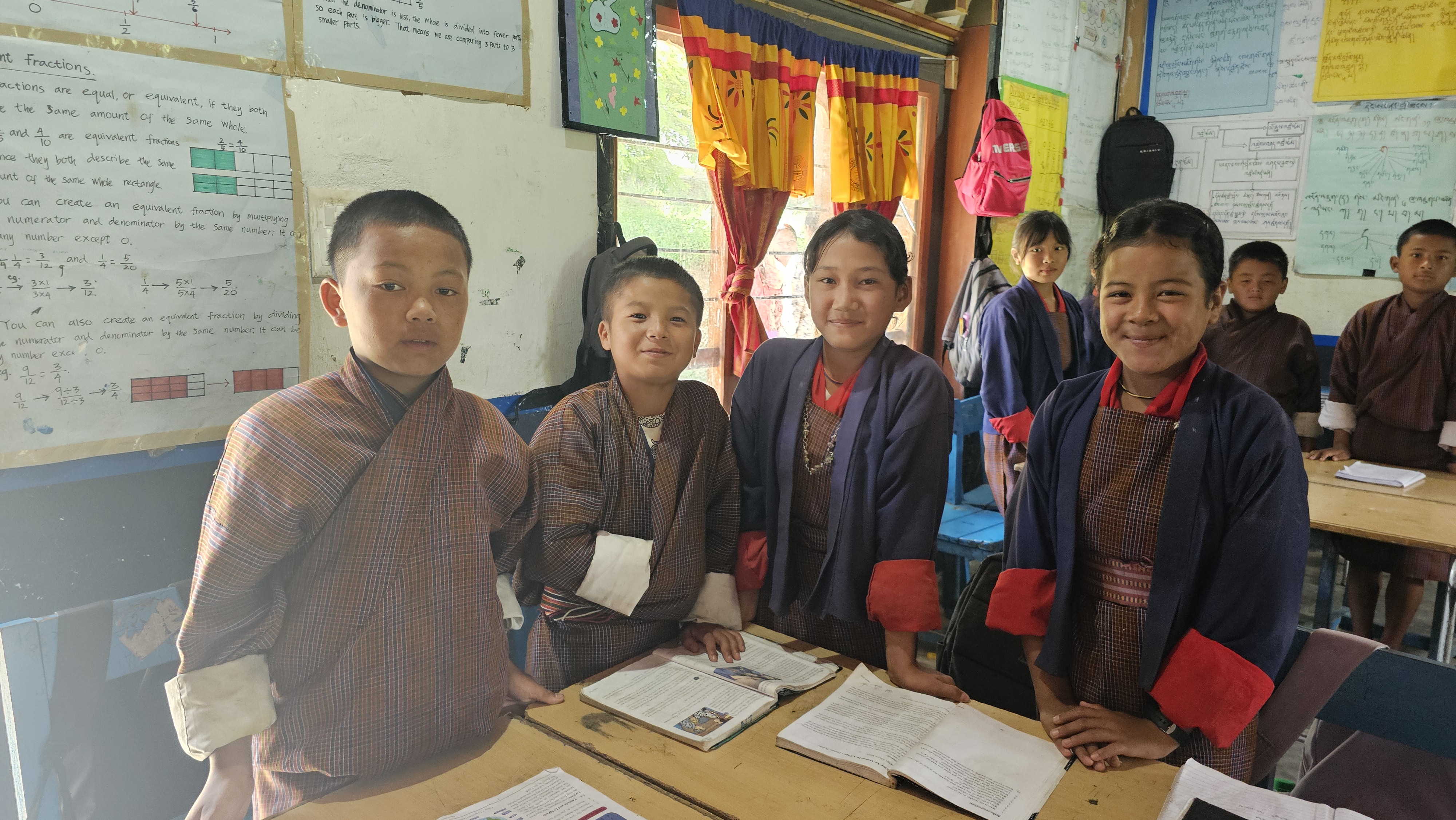Curricular Integration of GCED in Bhutan in Progress: Capacity-Building Workshops for Piloting the New Framework and Guide
09.08.2024 | apceiu-cdi | 69 reads
Co-organized by the Bhutan's Ministry of Education and Skills Development (MoESD) and APCEIU, the Workshop for Capacity-building of the Curriculum Development Committee (CDC) members and pilot school teachers, aimed at piloting GCED Materials, was held in Paro, Bhutan from July 15 to 17, 2024, followed by the consultations and school visits on 18-19 July.
Bhutan, along with Malaysia, Bangladesh, and Ghana, is a partner country in the fourth phase of the GCED Curriculum Development and Integration project. In 2023, during the second year of the project, Bhutan developed the GCED curriculum framework and guide for integrating GCED into its national curriculum. Additionally, Bhutan created a pilot guide for school sites and developed lesson exemplars for five subjects (Arts Education, English, Health and Physical Education, Social Studies, and Values Education), led by the CDC members.
This workshop aimed to enhance the capability to effectively conduct the pilot application of the GCED curriculum framework and guide. Approximately 70 participants attended, including the CDC members, teachers, and school principals from 15 pilot schools nationwide, officials from educational offices, key personnel from MoESD, as well as internal and external experts from APCEIU.

The workshop began with a traditional Bhutanese prayer ceremony to wish for the event's success. In her opening remarks, Jeongmin Eom, Deputy Head of the Institute for Global Citizenship Education at APCEIU, expressed gratitude for Bhutan's dedication to the project. She emphasized that Bhutan's efforts have led to the development of an outstanding GCED curriculum framework and guide tailored to the Bhutanese context. The workshop consisted of presentations and consultations from both internal and external experts from APCEIU, discussions among educators, and group activities. Notably, professional lectures were given on the “Roles of Teachers and Transformative Pedagogies in the Curricular Integration of GCED” and the "Roles of Monitoring and Evaluation in Curricular Implementation of GCED." These sessions are anticipated to be a driving force in ensuring the smooth and effective application of the GCED curriculum framework and guide in both its pilot and regular settings.



Following the workshop, APCEIU visited Lobesa Lower Secondary School and Nawakha Primary School in Punakha to gain a deeper understanding of Bhutan's school system. This involved observing classes and interacting with students. Additionally, APCEIU consulted with teachers at these schools to offer guidance for the pilot application and to support in addressing their challenges.


APCEIU also held separate meetings with Mr. Tshewang Chophel Dorji, Secretary of MoESD and Secretary-General of the Bhutan National Commission for UNESCO, and Mr. Karma Galay, Director-General of the Department of School Education at MoESD. At these meetings, attended by key figures from MoESD, both sides reaffirmed their commitment to ongoing collaboration in promoting GCED.

Based on discussions held during the workshop, Bhutan's CDC members and 15 pilot schools will conduct a pilot application in August and September to ensure the effective implementation of the GCED curriculum framework and guide in schools. Bhutan's MoESD plans to expand this framework and guide to schools nationwide, incorporating the improvements identified during the pilot application.
